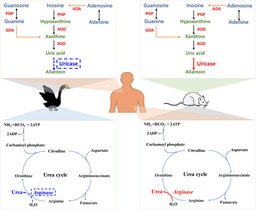Novel Agents for Chronic Lymphocytic Leukemia to Address Resistance
Published in Cancer and Genetics & Genomics

BTK Degraders
- Mechanism: These agents degrade Bruton tyrosine kinase (BTK), a key protein in B-cell receptor signaling, which is essential for CLL cell survival.
- Examples: NX-2127, BGB-16673, and NX-5948 have shown efficacy in relapsed/refractory (R/R) CLL.
- Non-Covalent BTK Inhibitors
- Mechanism: These reversible inhibitors target BTK without relying on covalent binding, overcoming resistance caused by mutations like C481S.
- Examples:
- Pirtobrutinib: Demonstrates high selectivity and efficacy, even in heavily pretreated patients.
- Nemtabrutinib: Similar efficacy but less well-tolerated compared to pirtobrutinib.
- BH3 Mimetics
- Mechanism: Mimic pro-apoptotic proteins to inhibit anti-apoptotic BCL2 family proteins, promoting cell death.
- Examples: Venetoclax targets BCL2, while newer agents like sonrotoclax aim to overcome resistance caused by mutations like Gly101Val.
- Monoclonal Antibodies
- Mechanism: Target antigens on CLL cells (e.g., CD20, CD19, CD37) to induce apoptosis or recruit immune cells for cytotoxicity.
- Examples:
- Obinutuzumab: Anti-CD20 antibody with improved efficacy over rituximab.
- Otlertuzumab: Anti-CD37 antibody triggering apoptosis and antibody-dependent cell-mediated cytotoxicity.
- Bispecific Antibodies
- Mechanism: Bind both CLL cell antigens (e.g., CD19, CD20, BCMA) and CD3 on T cells, redirecting T cells to kill leukemia cells.
- Examples:
- Blinatumomab: Targets CD19 and CD3.
- Teclistamab: Targets BCMA and CD3.
- Chimeric Antigen Receptor (CAR) T Cell Therapies
- Mechanism: Genetically modified T cells express CARs targeting antigens like CD19, enabling direct killing of CLL cells.
- Examples: Lisocabtagene maraleucel (CD19 CAR T therapy).
- Siglec-6 Monoclonal Antibodies
- Mechanism: Target Siglec-6, a novel antigen absent on healthy cells, to activate T cells and eliminate CLL cells.
- Examples: RC-1 and RC-2 antibodies engineered for high specificity and potency.
- ROR1-Directed Therapies
- Mechanism: Target ROR1, a receptor tyrosine kinase expressed selectively on CLL cells.
- Examples: Cirmtuzumab and zilovertamab vedotin.
- Vg9Vd2-T Cell Engagers
- Mechanism: Activate Vg9Vd2-T cells to lyse CLL cells by targeting CD1d, a molecule expressed on leukemic cells.
- Example: Bispecific single-domain antibodies designed to boost T cell responses.
- Anti-BAFF Antibodies
- Mechanism: Target BAFF, a factor promoting CLL cell survival, to induce apoptosis.
- Examples: Belimumab and ianalumab.
- Precision Medicine Approaches
- Mechanism: Use predictive biomarkers (e.g., TP53, IGHV mutations) and machine learning algorithms to tailor treatments based on tumor heterogeneity and resistance profiles.
These novel agents address unmet clinical needs by targeting specific pathways, overcoming resistance mechanisms, and enhancing immune responses, offering hope for improved outcomes in CLL treatment.
Follow the Topic
-
Discover Oncology

This is a fully open access general oncology journal that aims to provide a unified forum for researchers and clinicians. The journal spans from basic and translational science, to preclinical, clinical, and epidemiology, and welcomes content that interfaces at all levels of cancer research.
Related Collections
With Collections, you can get published faster and increase your visibility.
Single-Cell RNA Sequencing in Cancer Immunotherapy
Cancer immunotherapy is a hot area of current oncology research, with its core focus on activating or enhancing the body's immune system's ability to recognize and kill cancer cells. However, cancer cells possess complex heterogeneity and dynamics, which affect the efficacy of immunotherapy in many ways. Single-cell RNA sequencing (scRNA-seq) has emerged as a powerful tool in recent years, providing us with an unprecedented insight into the cellular heterogeneity and dynamics within tumors. This technology has revolutionized our understanding of cancer biology, especially in the context of cancer immunotherapy. By enabling researchers to analyze individual cells, scRNA-seq allows them to identify distinct cell populations, track cellular responses to treatments, and discover new therapeutic targets. This collection aims to compile cutting-edge research in this field and explore the various applications of single-cell RNA sequencing in cancer immunotherapy.
This collection will cover the following topics: 1. The latest advances in single-cell RNA sequencing technology in cancer immunotherapy, including research on technology optimization and data interpretation; 2. Using single-cell RNA sequencing to reveal the characteristics of immune cell subgroups in the tumor microenvironment and their interaction mechanisms with cancer cells; 3. Analyzing the molecular basis of immune therapy response and resistance through single-cell RNA sequencing, exploring new biomarkers and therapeutic targets; 4. Combining single-cell RNA sequencing with clinical studies of immunotherapy to assess treatment outcomes, predict patient prognosis, and optimize treatment plans.
Keywords: cancer immunotherapy, single-cell RNA sequencing, therapeutic targets, tumor microenvironment, treatment response
Publishing Model: Open Access
Deadline: Jun 30, 2026
Tumor Microenvironment
The immunological and stromal components of the tumor microenvironment (TME) play important roles in supporting or preventing tumor growth. The interaction of tumor cells and immune cells inside the TME is complex, and it can result in immune suppression, immune evasion, or, in the opposite case, successful immune-mediated tumor elimination. Cancer therapy has increasingly focused on targeting the TME. Immune checkpoint inhibitors (e.g., anti-PD1, anti-CTLA4), CART cell therapy, and vaccinations are all aimed at reactivating the immune system's ability to recognize and destroy tumor cells. Modulating immune component activity is being investigated as a way to counteract the immunosuppressive TME and boost immunotherapy efficacy. This thematic Collection will provide a thorough understanding of the complex role of the tumor microenvironment in the emergence of cancer treatment resistance, as well as innovative strategies for overcoming this challenge and investigating the tumor microenvironment's contribution to personalized medicine.
Keywords: tumor cells, TAMs, TILs, stromal cells, immunotherapy
Publishing Model: Open Access
Deadline: Jun 30, 2026





Please sign in or register for FREE
If you are a registered user on Research Communities by Springer Nature, please sign in
Part of a collection:
The Convergence of Targeted Precision Medicine: Future of Oncology Therapeutics